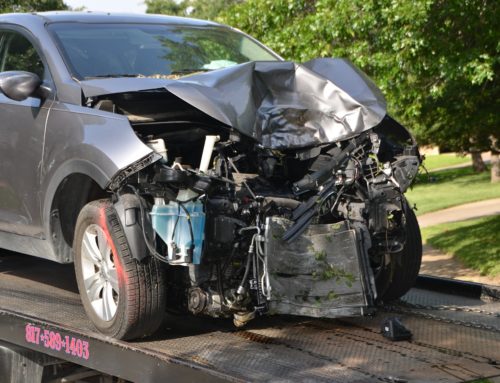That is the question you should be prepared to hear–or ask yourself–following an accident. In a typical year, nearly 6 million car accidents are reported to the police (Vallet, 2015). Most of them are categorized as property damage, meaning there were no injuries or fatalities, with compensation and/or repairs being settled outside of the insurance company in order to avoid costly policy increases. While not the recommended course of action, reporting an accident to your insurer is not a legal requirement. However, in the event of an accident resulting in injury or death, an insurance claim (or claims) is absolutely necessary to avoid a serious lawsuit and incarceration.
Still debating whether or not to make a claim with your insurance carrier? Read on to make an educated decision and protect yourself.
Legal Ramifications of Not Filing an Insurance Claim
You’ve been involved in an accident with the other driver being at fault. Be wary if the other driver offers to settle up without filing an insurance claim– they may be hoping to avoid a an increased premium. Even if the damage seems minor, and you and the other driver agree that you’ll handle everything yourselves, that approach can backfire. What if the other driver has a change of heart and decides to sue you for injuries or property damage? In that situation, your insurance company might refuse to defend the suit on your behalf, on the basis that you failed to meet your contractual obligation to promptly report the accident to them. If that happens, you’ll be personally
exposed to liability for money damages.
On the other hand, if you’re at fault, and you hit another person or vehicle, he or she has the right to make a liability claim against you, with the potential to file suit. With insurance, you’re entitled to a legal defense and coverage of a judgment against you up to a certain amount. The average liability claim is $15,000, and, in those cases, it’s hard to imagine you wouldn’t want to make that claim.
Tempting as it may seem (who likes haggling with insurance companies anyways?) accepting–or offering–to settle outside of a claim could in fact expose you to future lawsuits and possible extortion.
When Not Filing a Claim is Probably OK
Let’s say you back into your garage door or hit a guardrail when you skid in the snow. It’s your fault, but it’s also your car. As long as you’re fairly sure there won’t be any lingering medical issues, you’re better off paying out of pocket if you can afford it. So in this situation, you need not be concerned about someone else suing you for injuries or property damage and you are probably safe if you do not report the accident to your insurance company (Ashford, 2015). In this and similar cases, you will likely be able to repair the damage for much less than the cost of your deductible, or you might just decide to leave it as is.
The Bottom Line
Regardless of the situation, the decision not to report an accident to your insurance company should not be made hastily, as it can have serious consequences under your insurance policy as well as your wallet. If you were involved in an accident and have concerns about how the paperwork or claims were handled, consider working with Reservitz Law. Our attorneys can help you work with insurance companies, file your personal injury claim with the court, and work through the details regarding the statute of limitations.
Sources:
Ashford, Kate. (2015) “Should I File an Auto Insurance Claim?” Time.com/money
Vallet, Mark. (2015) “Handling an Accident on Your Own” Insurance.com








Leave A Comment
You must be logged in to post a comment.